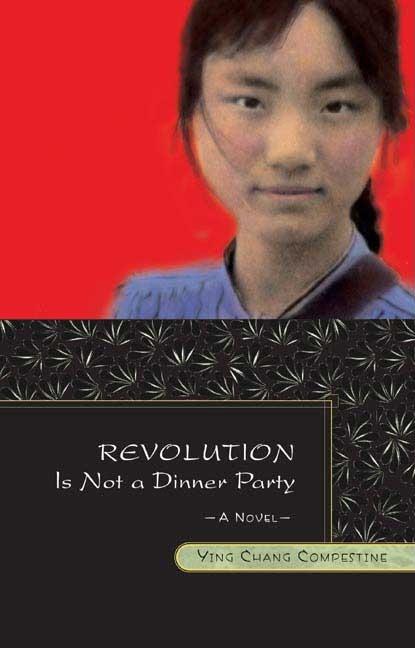Book Descriptions
for Revolution Is Not a Dinner Party by Ying Chang Compestine
From Cooperative Children's Book Center (CCBC)
The impact of China’s Cultural Revolution on the lives of a Chinese family unfolds through the eyes Ling, who is nine as this story begins. Her father is a doctor who admires the west and is teaching her English; her mother is a traditional healer. Ling’s perspective on the revolutionary changes is authentically childlike. At school, she is singled out and bullied as one of the few children who hasn’t joined the Young Pioneers. At home, as government restrictions tighten, she longs for the pretty dresses her mother used to make her (flowered fabric is no longer sold) and misses her favorite foods. When Comrade Li, a political officer for Mao’s government, moves into her building, and indeed, into a room that was formerly part of her own apartment, Ling sees only his charm at first. She gradually realizes what her parents already understand—he is a threat. Comrade Li becomes the driving force behind many arrests and scenes of public humiliation as the Red Guard rounds up neighbors, friends, and eventually family. The moment Ling realizes her father, whom she idolizes, cannot protect her family is painful and powerful—one of many achingly real revelations in Ying Chang Compestine’s compelling novel, based in part on her own family’s experiences. (Ages 10–14)
CCBC Choices 2008. © Cooperative Children's Book Center, Univ. of Wisconsin - Madison, 2008. Used with permission.
From The United States Board on Books for Young People (USBBY)
Taking Chairman Mao’s aphorism as its title, Compestine’s novel springs from her childhood in Wuhan, China, from 1972 (when she is nine years old) to 1976, at the end of the Cultural Revolution. Ling, the privileged child of doctors, suffers escalating humiliation at the hands of her Red Guard classmates as well as privation brought on by political chaos. After her father is arrested, her rebellious spirit both endangers and sustains her. When Mao’s death brings an end to the turbulent years, Ling’s tormenters lose their power and her family is happily reunited. mac, mm
Bridges to Understanding: Envisioning the World through Children's Books. © USBBY, 2011. Used with permission.


